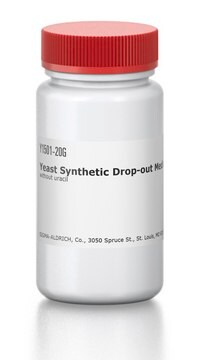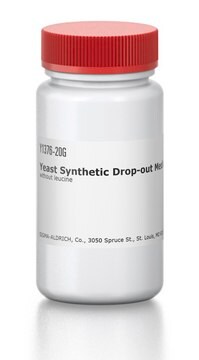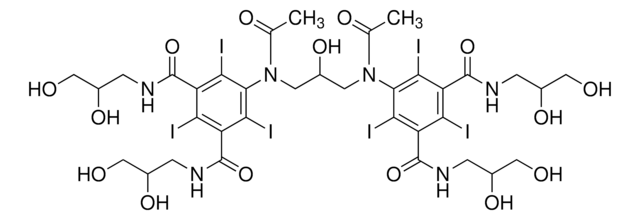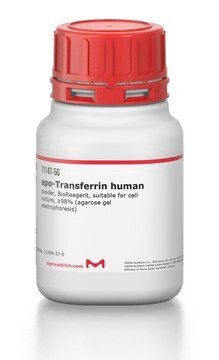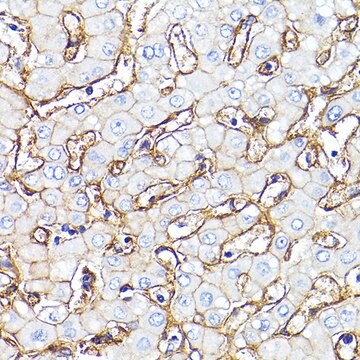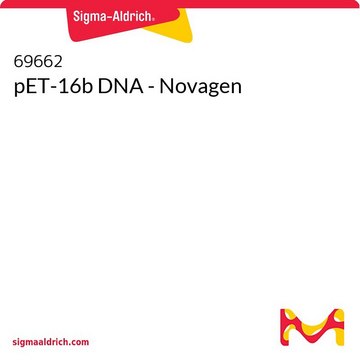おすすめの製品
タグ
6-His tagged
形状
buffered aqueous solution
微生物選択
kanamycin
複製起点
2Micron
pUC (500 copies)
ペプチド切断
TEV
no cleavage
ペプチドタグ位置
N-terminal
プロモーター
Promoter name: TEF1
Promoter activity: constitutive
Promoter type: yeast
分泌シグナル
Inulase
alpha factor FL
alpha factor SP
alpha-amylase
glucoamylase
輸送温度
ambient
保管温度
−20°C
詳細
Molecular cloning often benefits from optimizing the vector used for expression.
Yeast signal peptide vector set allows you to compare the activity of nine different yeast secretory tags (signal peptides) to identify which is preferred for your gene of interest. The most efficient tag seems to depend on the protein of interest and also on the cells used, hence we consider it important to compare several tags in order to select the best. Inserting your gene of interest into the MCS of these plasmids will place it downstream of the signal peptide, under regulatory control of the strong yeast TEF1 promoter.This plasmid set has been designed to be compatible with a range of cloning techniques. The multiple cloning site contains a range of standard commonly used restriction sites for cloning. Using these sites genes can be inserted using standard cloning methods with DNA ligase. Other methods such as ligase independent cloning (LIC) Gibson Assembly InFusionHD or Seamless GeneArt can also be used and because all of our plasmids are based on the same backbone the same method can be used for cloning into all of our catalogue vectors.
Multiple cloning site notes: There are a few important sites within the MCS. These include the NcoI site the XbaI site and the BsgI and BseRI sites. The NcoI site contains a start codon that is immediately downstream of both a Kozak and Shine-Dalgarno ribosomal binding site. These allow for optimal positioning of genes when the start codon is placed in this location. If this is not required and you wish to use a downstream site for gene cloning you can remove the NcoI site by cleaving the plasmid with KpnI. The XbaI site contains a stop codon. This stop codon is positioned in a specific position in relation to the BsgI and BseRI sites that are immediately downstream. When either BseRI or BsgI cleave the plasmid they produce a TA overhang from the stop codon in the XbaI site that is compatible with all of our peptide tag plasmids cut with the same sites. BseRI and BsgI sites are non-palindromic and cleave a defined number of bases away from their binding site. Whenever we clone a gene into our multiple cloning site we always position the start and stop codon in the same positions in the MCS. If the start and ends of the genes are not compatible with NcoI and XbaI we extend the sequence to the nearest external sites but keep the start and stop codons locations consistent.
Transcription Termination: Plasmids for molecular cloning contains three alternative transcription terminators for mammalian bacterial and bacteriophage (T7) expression. This means that only the promoter needs to be changed to alter the expression system you are using. We sell multiple promoters that can be used in each of these systems. The presence of each terminator does not reduce expression in the alternative systems.
Yeast signal peptide vector set allows you to compare the activity of nine different yeast secretory tags (signal peptides) to identify which is preferred for your gene of interest. The most efficient tag seems to depend on the protein of interest and also on the cells used, hence we consider it important to compare several tags in order to select the best. Inserting your gene of interest into the MCS of these plasmids will place it downstream of the signal peptide, under regulatory control of the strong yeast TEF1 promoter.This plasmid set has been designed to be compatible with a range of cloning techniques. The multiple cloning site contains a range of standard commonly used restriction sites for cloning. Using these sites genes can be inserted using standard cloning methods with DNA ligase. Other methods such as ligase independent cloning (LIC) Gibson Assembly InFusionHD or Seamless GeneArt can also be used and because all of our plasmids are based on the same backbone the same method can be used for cloning into all of our catalogue vectors.
Multiple cloning site notes: There are a few important sites within the MCS. These include the NcoI site the XbaI site and the BsgI and BseRI sites. The NcoI site contains a start codon that is immediately downstream of both a Kozak and Shine-Dalgarno ribosomal binding site. These allow for optimal positioning of genes when the start codon is placed in this location. If this is not required and you wish to use a downstream site for gene cloning you can remove the NcoI site by cleaving the plasmid with KpnI. The XbaI site contains a stop codon. This stop codon is positioned in a specific position in relation to the BsgI and BseRI sites that are immediately downstream. When either BseRI or BsgI cleave the plasmid they produce a TA overhang from the stop codon in the XbaI site that is compatible with all of our peptide tag plasmids cut with the same sites. BseRI and BsgI sites are non-palindromic and cleave a defined number of bases away from their binding site. Whenever we clone a gene into our multiple cloning site we always position the start and stop codon in the same positions in the MCS. If the start and ends of the genes are not compatible with NcoI and XbaI we extend the sequence to the nearest external sites but keep the start and stop codons locations consistent.
Transcription Termination: Plasmids for molecular cloning contains three alternative transcription terminators for mammalian bacterial and bacteriophage (T7) expression. This means that only the promoter needs to be changed to alter the expression system you are using. We sell multiple promoters that can be used in each of these systems. The presence of each terminator does not reduce expression in the alternative systems.
シーケンス
For Genebank sequence, FASTA sequence, Quick-reference Plasmid Map, and Full Plasmid Map, see the individual vector product page for links.
アナリシスノート
この製品の分析証明書を確認するには、www.oxfordgenetics.comをご覧ください。
その他情報
Looking for more vector options to move your experiments forward faster? Consider a custom cloning vector designed and built by Oxford Genetics™. Find out more at Oxford Genetics - Sigma's partner for cloning and expression vectors for molecular biology and synthetic biology applications.
法的情報
These plasmids are sold free of reach-through rights and can be used to make commercial products. However the plasmids themselves (or derivatives) cannot be sold.
Oxford Genetics is a trademark of Oxford Genetics Ltd
キットの構成要素は別途購入可能です。
製品番号
詳細
SDS
- PSF-TEF1-NH2-A-FACTOR SP - ALPHA FACTOR SECRETION PLASMID, plasmid vector for molecular cloning
- PSF-TEF1-NH2-GLUCA - GLUCOAMYLASE SECRETION PLASMID, plasmid vector for molecular cloning
- OGS1879PSF-TEF1-NH2-INTS - INVERTASE SECRETION PLASMID, plasmid vector for molecular cloningSDS
関連製品
製品番号
詳細
価格
保管分類コード
12 - Non Combustible Liquids
引火点(°F)
Not applicable
引火点(℃)
Not applicable
試験成績書(COA)
製品のロット番号・バッチ番号を入力して、試験成績書(COA) を検索できます。ロット番号・バッチ番号は、製品ラベルに「Lot」または「Batch」に続いて記載されています。
Geoffrey M Lynn et al.
Nature biotechnology, 33(11), 1201-1210 (2015-10-27)
The efficacy of vaccine adjuvants such as Toll-like receptor agonists (TLRa) can be improved through formulation and delivery approaches. Here, we attached small molecule TLR-7/8a to polymer scaffolds (polymer-TLR-7/8a) and evaluated how different physicochemical properties of the TLR-7/8a and polymer
Jin-Gyoung Jung et al.
PLoS genetics, 10(10), e1004751-e1004751 (2014-10-31)
The Notch3 signaling pathway is thought to play a critical role in cancer development, as evidenced by the Notch3 amplification and rearrangement observed in human cancers. However, the molecular mechanism by which Notch3 signaling contributes to tumorigenesis is largely unknown.
Diana Romero et al.
Carcinogenesis, 37(1), 18-29 (2015-10-28)
Dickkopf-3 (Dkk-3) is a secreted protein whose expression is downregulated in many types of cancer. Endogenous Dkk-3 is required for formation of acini in 3D cultures of prostate epithelial cells, where it inhibits transforming growth factor (TGF)-β/Smad signaling. Here, we
Alexander C Cerny et al.
PLoS genetics, 11(10), e1005578-e1005578 (2015-10-29)
Recycling of signaling proteins is a common phenomenon in diverse signaling pathways. In photoreceptors of Drosophila, light absorption by rhodopsin triggers a phospholipase Cβ-mediated opening of the ion channels transient receptor potential (TRP) and TRP-like (TRPL) and generates the visual
ライフサイエンス、有機合成、材料科学、クロマトグラフィー、分析など、あらゆる分野の研究に経験のあるメンバーがおります。.
製品に関するお問い合わせはこちら(テクニカルサービス)